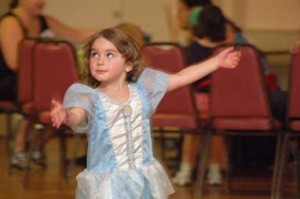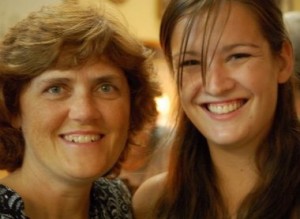The way Finbar Furey tells the story, the accident last April in Portugal could have been a career-ender, a sad coda for Irish musical legend. And the way Finbar Furey tells the story—as he did to me a week ago, via phone from Ireland—it can also make you laugh.
“Well,” he says, “we were coming back from a gig and there were a lot of goats on the road and, of course, Finbar wasn’t strapped in so he went flyin’.”
No one in the van was seriously hurt, but Furey’s shoulder took the brunt of the impact. When he next played the uillean pipes—his signature instrument since he began performing in bars with his father and brothers as a child in Dublin—even friends noticed he was in pain. “I was in total agony,” he admits. “I kept playing, but I don’t even know where the music came from.” He consulted an orthopedic expert—“the one who does all the operations on players in the GAA [Gaelic Athletic Association],” he says—and underwent surgery to repair the mess the accident had made of his shoulder. Surgery that was followed by eight weeks of physical therapy during which he couldn’t pick up a musical instrument, let alone play it. It was like a jail sentence to the man trad icon Willie Clancy once called “the prince of pipes.”
“I was goin’ out of me tiny mind,” Furey confesses. “Then as a gift our children sent us to Cairo, Egypt. I thought it would be like any other sort of town. You go out at night to the pubs and listen to music, but there’s no such thing. I nearly died! I’m looking out at the desert, at the pyramids, and I’m thinking, ‘No wonder they built those things, they were bored out of their minds.’”
And he’ll be getting even with his children. “I’m sending them to Iceland,” he vows, laughing. “In the winter.”
Fortunately, Furey picked up the pipes a few weeks ago and played, to his relief, pain-free. . .and well. “I’ve been able to play music, and I can’t even remember learning it, since I was a tiny tot,” he says. “I can leave the pipes alone for a year and just pick them up, close me eyes, and it just is there. I can play the same tune six different ways. I throw it into the air, and out comes this tune. I just gather it within me heart and let it flow.”
He’ll be letting it flow on Monday night, October 13, at The Shanachie Irish Pub and Restaurant in Ambler, as part of a US tour to promote his new album, “No Farewells, No Goodbyes,” an eclectic mix of traditional music like “She Moves Through the Fair,” Furey’s own tunes, and even an unusual rendition of “Smile.” Furey performs the old standard as though it was being sung by a gypsy busker, which is not a stretch for the 62-year-old performer: His parents, Ted and Nora, were traveling people (called tinkers in Ireland, or Pave among themselves) who settled in the Ballyfermot section of Dublin’s inner city when Finbar was only four. Ted Furey, a professional musician, played the fiddle and pipes; his wife was a singer and storyteller who also played the banjo and melodeon (button accordian). One of Furey’s earliest memories is listening to his father singing in the empty rooms of their first real home.
He included “Smile” on the CD, which took him two years to make, to honor the late actor Charlie Chaplin, father of Furey’s close friends, Josephine and Geraldine Chaplin, the actress (“Dr. Zhivago”). Charlie Chaplin composed the melody for his movie, “Modern Times.” (The Fureys once did an album of Chaplin’s songs.)
“Charlie Chaplin made me laugh so many times in movies, even when we were struggling at home and maybe hadn’t had much to eat,” Furey recalls. “I wanted to do it like a busker on the street, someone who is starving, like Charlie was. He never had anything as The Tramp, but he was still proud.”
When he was barely in his teens, Furey started appearing with this brother, Eddie, and their father at the now famous O’Donoghue’s Bar in Dublin, with Ronnie Drew who later went on to found The Dubliners. Finbar and Eddie eventually began touring folk clubs and other venues throughout Ireland, the UK, and Europe, audiences growing larger and larger until they numbered in the thousands. The Furey brothers were instrumental in establishing the first Irish folk festival tour in Germany, where there’s still a great love for traditional music today. Soon, they were joined by younger brothers Paul and George, headlining concerts and selling them out in Europe, Australia, New Zealand, and America. Some of their recordings, such as “When You Were Sweet 16,” “Leaving Nancy” and “I Will Love You Every Time When We Are One,” became not only hits, but standards. Along with the Dubliners, the Fureys are credited with establishing Irish folk music as a genre at a time when Irish music was limited to “tooralooraloora” tunes usually sung by Bing Crosby.
In 1993, Finbar left The Fureys to go out on his own, and his life has taken some interesting turns. If you saw the Martin Scorcese film, “Gangs of New York,” starring Daniel Day-Lewis and Leonardo DiCaprio, you might have seen and heard Finbar singing, “New York Girls.” “This was my first introduction to film—with Martin Scorsese,” he says. “When I finished my part, which took 10 days, I left a message that I was leaving, catching a flight the next morning. When I was walking to my limo, Martin Scorsese came running out and asked me, ‘Did you ever think of taking up acting? You’re a deadringer for Anthony Quinn and you have a marvelous voice.’”
Furey laughs. It’s always been the music so, even with the encouragement from one of the world’s most acclaimed film directors, he didn’t pursue a second act in the movie business until it came calling on him. Cork-born screenwriter and director Mark Mahon contacted him after seeing his face on a poster for a Legends tour Furey was doing with Liam Clancy of the Clancy Brothers (little known fact: Finbar and Eddie Furey were “Clancy Brothers” for a time after Tommy Makem left the group) and Paddy Reilly of The Dubliners, now owner of the eponymous New York pub where Furey will be playing October 15.
Mark Mahon asked Furey to do a screen test for his new movie, “Strength and Honor,” a modern-day fight movie set in Cork. “I told him I didn’t have the time,” Furey says. “He said, ‘Look, come in a read a couple of lines,” so I did.”
Mahon hired him, and in the film, which stars American tough-guy actor Michael Madsen (“Reservoir Dogs,” “Kill Bill”) and won top honors at the Boston Film Festival, Furey plays a fight referee, a part that turned out to be grueling, and not a little dangerous. “In the last fight, we must have shot it 20 or 30 times, and I was absolutely nackered,” he recalls, chuckling. “I had bruises on me body because I couldn’t get out of the way. I said, ‘If this is acting, I don’t want any more of it!’ So I got the two fighters together (Madsen and his British counterpart Vinnie Jones) and I says, ‘Now lads, I’ll only warn you once. If you touch one hair of this head, I’ll find out where you live and I’ll burn your houses down.”
He roars with laughter.
When the movie wrapped for Furey, it was literally the pipes that called him. “I was in the middle of making my latest album when the movie came along and I had been on tour with the Legends. I finally got around to finishing the album—geeze, it took me the best part of the year to put it together. I picked musicians I love working with, like Francie Conway (Furey has been part of The Works, the incredible collection of musicians who work with Conway, a singer-songwriter and guitarist) and Jimmy Faulkner, who died this year. Jimmy was one of the greatest guitar players. On the track, ‘The Piper Sleeps,’ he plays his Les Paul with the pipes at the end and it’s absolutely incredible. And he would have been very ill at the time.”
You can hear clips from the album here. But before you listen to the music, read some of the lyrics. They reveal not simply a gifted lyricist, but a poet. For instance, Furey’s song, “Connemara,” which is as spare and evocative as Japanese haiku:
“Dancing streams woo Connemara, tranquil Burren, unquiet, still
Mystic shapes, inventing moments, loughs enhancing flowering hills
Connemara
“Luring landscape rising forward, infill rain clouds masking dawn
Ghostly shadows chasing moonlight, softly breezes whisper morn
Connemara”
In fact, Furey does write poetry, some of which he read to me in his rich, raw baritone voice, making the spoken word sound like music. It was mesmerizing. I didn’t want him to stop. (He shares some of his poems with us here.) While in the United States, he’ll be talking with publishers about a book of poetry, and a three-volume memoir of The Fureys, starting with their hardscrabble boyhood in Dublin (where they were friends and neighbors with another famous gypsy piper, Paddy Keenan) and ending with the breakup of the band in 1993.
There are more Fureys carrying on the music tradition. Furey’s son, Martin, performs with the High Kings of Dublin, who recently appeared in Philadelphia. His daughter, Aine, is also a singer who is putting the finishing touches on a new album.
Furey is looking forward to his American tour, which will take him to Washington, New York, and Massachusetts, along with his Shanachie gig. “Oh, I love going to the States. It’s just a bigger Ireland, Ireland stretched,” he says, with characteristic wryness. “I can’t understand why you didn’t make us your 51st state. We’re closer to you than Hawaii.”


